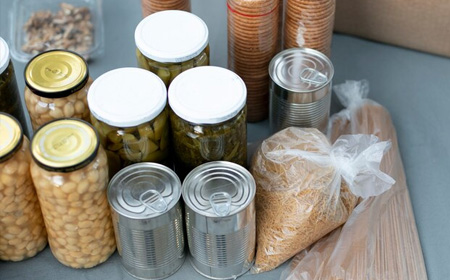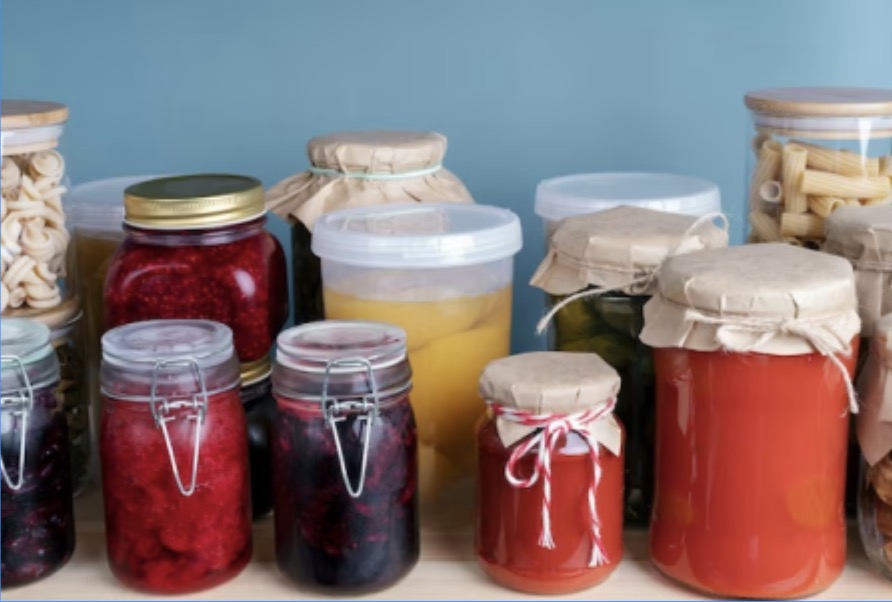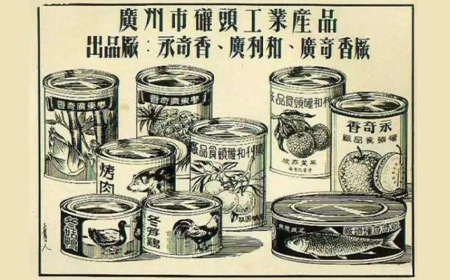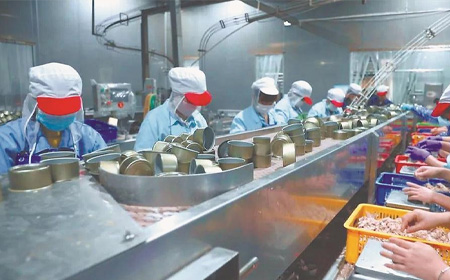1. The birth of canned food:
The development of canned food dates back to the early 1800s. In 1810, Peter Durand patented the concept of preserving food in tinned iron cans. This breakthrough provided a durable and portable alternative to traditional preservation methods and laid the foundation for the industrialisation of food preservation.
2. Industrialisation and large-scale production:
Canned food played a key role in the industrialisation process through the introduction of mass production techniques. In 1813, Bryan Donkin established the first commercial canning factory in London, marking the beginning of large-scale canning operations. This shift from hand production to mechanised production enabled efficient, cost-effective manufacturing and paved the way for widespread availability of canned foods.
3. Global trade and expansion:
Canned food and industrialisation led to a significant expansion of global trade. The ability to preserve food for long periods of time facilitated long-distance transport, allowing canned products to be exported to distant markets. The globalisation of food trade has fostered economic growth, cultural exchange and the development of interconnected global supply chains.
4. Technological advances:
The canning industry has driven technological advances that have revolutionised food preservation. In the mid-19th century, continuous improvements in canning machinery increased production capacity and reduced costs. Innovations such as Ezra J. Warner's successful development of the first can opener in 1866 further increased the accessibility and convenience of canned foods.
5. Standardisation and quality control:
Industrialisation brought about standardisation and quality control measures in the canning industry. Scientific figures such as Louis Pasteur made significant contributions to food safety and quality assurance. Pasteurisation, a process that kills bacteria and microorganisms through heat treatment, has become a standard practice in the production of canned foods, ensuring product safety and extending shelf life.
6. Social change:
The advent of canned foods brought about social change. Because of the easy availability of preserved foods, individuals and families no longer rely solely on seasonal harvests or local markets. Canned foods provided a reliable and convenient source of livelihood, contributing to the development of urbanised, migrant and industrialised societies.
7. Impact on modernisation and urbanisation:
The industrialisation of canned food has had a profound impact on modernisation and urbanisation. As more and more people migrated to cities in search of factory jobs, the availability of canned food provided a convenient solution for the growing urban population. Canned food became a household staple, supporting the changing lifestyles of industrialised societies.
8. Timeline of Key Events:
- 1810: Peter Durand patented the concept of preserving food in tinned iron cans.
- 1813: Bryan Donkin establishes the world's first commercial canning factory in London.
- Mid-19th Century: Technological advances in canning machinery simplify the production process.
- 1866: Ezra J. Warner invents the first successful can opener.
- Late 19th Century: Louis Pasteur's contributions to food safety and pasteurisation improve the quality of canned foods.
The impact of canned food on industrialisation is undeniable. Through its role in mass production, global trade, technological advances and social change, canned food has driven modernisation and shaped the world we live in today. The ability to preserve food on a large scale, coupled with the development of mechanised production techniques, revolutionised the food industry and contributed to the growth of an interconnected global market. Canned food remains an important part of our modern food system, representing the legacy of industrialisation and its impact on food preservation and global trade.






